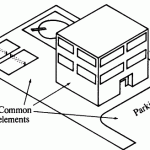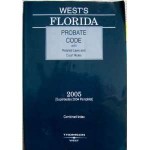The buyer in a real estate transaction certainly is advised to do their “due diligence” in making the decision to complete a purchase. Due diligence is the process of systematically researching and verifying all information needed to make an informed buying decision. For the purchase of a residential condominium this includes researching the Condominium Association, […]
Interstate Extradition in the United States
Every State of the United States has legal authority regarding people present within its boundaries. A State does not have authority over a person present in another State. For example: If a person is wanted for a crime committed in Illinois is found in Florida, an arrest can only legally be made by Florida law […]
Title Insurance: Buyers & Owners Policies
It is critical when making a real estate investment that the owner knows he owns the property free from any claims by third parties. When a buyer contracts to buy a home, he wants to be certain that the seller can legally sell it. Ownership of real estate can be very complex. There can be […]
Entrapment as an Affirmative Defense to Criminal Charges
“Entrapment” may be a defense to criminal prosecution if a government agent induced a person to commit a crime which the person was otherwise unlikely to commit. Investigation and prosecution of certain crimes can be difficult unless members or agents of law enforcement participate in elements of the prohibited activity. Examples are drug sales, prostitution […]
Direct vs. Circumstantial Evidence: Observation vs. Inference
There are two types of evidence at a trial: direct and circumstantial. One, if believed, directly proves a fact; the other allows a fact to be inferred. In court a trial is held to determine specific facts and the legal implications of those facts. In a criminal trial, the question is if the defendant broke […]
Types of Property Ownership are Important in Estate Planning
The principal goal of estate[1] planning is to see that the wishes of the person who accumulated property[2] are met. The most familiar method for addressing this goal is a valid Last Will and Testament. An additional tool maybe a Revocable Living Trust[3]. Both of these legal tools are primarily designed to direct disposition of […]
Requirements for a Valid Last Will and Testament in Florida
While Florida gives a person much freedom to dispose of his property (known as his “estate”) at his death, this freedom is gained only through the execution of a valid will. To be valid a will must meet defined formalities. Will execution formalities and the consequences of not having a valid will are found in […]
The Web of Law: International, Natural, Common, Constitutional, Statutes & Regulations
While the Constitution is the organic legal document of the United States, it is not the only source of law or legitimate government authority. There is a hierarchy and interrelationship among the laws that govern our lives. Each strand in the complex web of law has different sources and relationships to the other. People rely […]
Real Estate Contract Contingencies & The Attorney Review Period
People making an offer to buy a home should be certain the written contract offer includes an attorney review period. Small contract matters can have big consequences. Residential real estate transactions typically begin with a written offer from an interested buyer to a seller. Form contracts[1] are often used with blank spaces for the property […]
One Pleasant and Ten Practical Reasons to Have a Last Will and Testament
About seventy percent of Americans do not have a will. Many procrastinate. They believe they do not have enough assets or they simply do not want to consider their own mortality. If someone has not written a will, one has been written for them. State law determines what happens to the property of someone who […]















